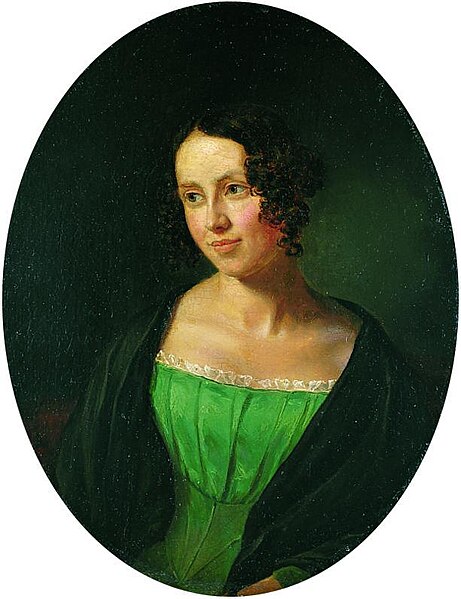Fear and Trembling is a philosophical work by Søren Kierkegaard, published in 1843 under the pseudonym Johannes de silentio. The title is a reference to a line from Philippians 2:12, which says to "continue to work out your salvation with fear and trembling." The Philippians verse is sometimes thought to reference Psalm 55:5, which says, "Fear and trembling came upon me."
First edition title page
Abraham and family leaving Ur
"Yes, when in mournful moments we want to strengthen and encourage our minds by contemplating those great men, your chosen instruments, who in severe spiritual trials and anxieties of heart kept their minds free, their courage uncrushed, and heaven open, we, too, wish to add our witness to theirs in the assurance that even if our courage compared to theirs is only discouragement, our power powerlessness, you, however, are still the same, the same mighty God who tests spirits in conflict, the same Father without whose will not one sparrow falls to the ground."

The Sacrifice of Iphigenia. "The tragic hero assures himself that the ethical obligation is totally present in him by transforming it into a wish. Agamemnon, for example, can say: To me the proof that I am not violating my fatherly duty is that my duty is my only wish. Consequently, we have wish and duty face to face with each other. Happy is the life in which they coincide, in which my wish is my duty and the reverse, and for most men the task in life is to adhere to their duty and to transform it by their enthusiasm into their wish. The tragic hero gives up his wish to fulfill his duty. For the knight of faith, wish and duty are also identical, but he is required to give up both. If he wants to relinquish by giving up his wish, he finds no rest, for it is indeed his duty. If he wants to adhere to the duty and to his wish, he does not become the knight of faith, for the absolute duty specifically demanded that he should give it up. The tragic hero found a higher expression of duty but not an absolute duty.
Søren Aabye Kierkegaard was a Danish theologian, philosopher, poet, social critic, and religious author who is widely considered to be the first existentialist philosopher. He wrote critical texts on organized religion, Christianity, morality, ethics, psychology, and the philosophy of religion, displaying a fondness for metaphor, irony, and parables. Much of his philosophical work deals with the issues of how one lives as a "single individual", giving priority to concrete human reality over abstract thinking and highlighting the importance of personal choice and commitment. He was against literary critics who defined idealist intellectuals and philosophers of his time, and thought that Swedenborg, Hegel, Fichte, Schelling, Schlegel, and Hans Christian Andersen were all "understood" far too quickly by "scholars."
Unfinished sketch of Kierkegaard by his cousin Niels Christian Kierkegaard, Royal Library, Copenhagen, c. 1840
When Michael (Mikael) Kierkegaard died on 9 August 1838 Søren had lost both his parents and all his brothers and sisters except for Peter who later became Bishop of Aalborg in the Danish State Lutheran Church.
From left to right: Wolff, Holberg, Hamann, Lessing, Plato and Socrates
Regine Olsen, a muse for Kierkegaard's writings








